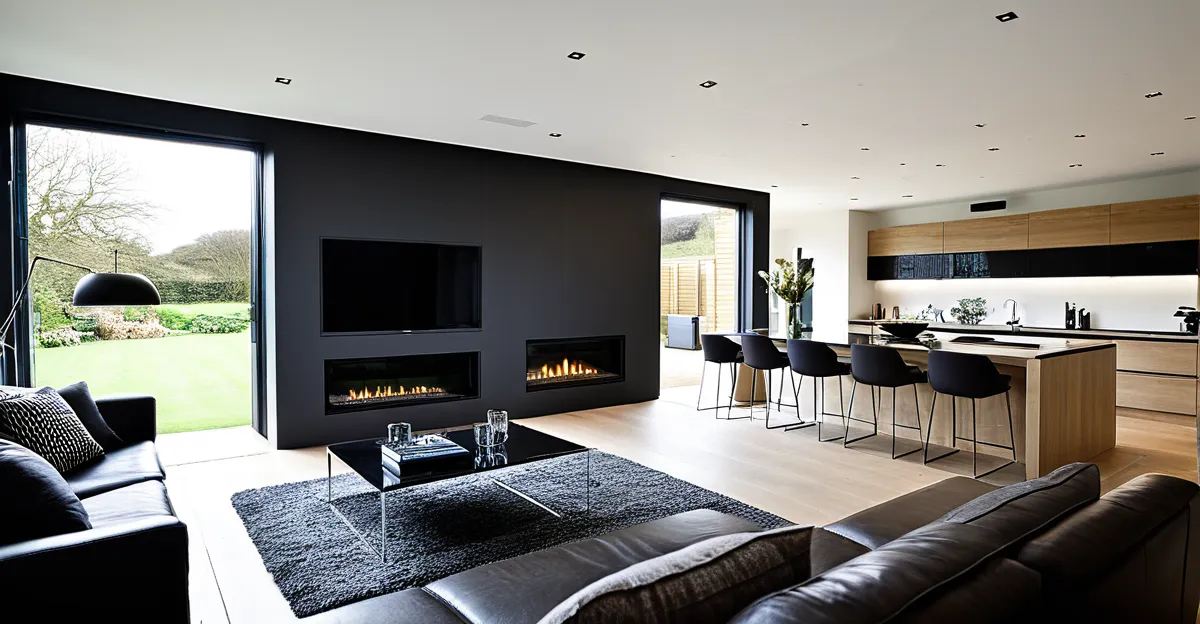Key Benefits of Smart Technologies in Modern UK Homes
Smart home benefits extend far beyond mere novelty—they transform daily life through home automation that enhances comfort, convenience, and accessibility. For busy UK households, automating routine tasks like lighting, heating, and security offers seamless control at your fingertips, significantly reducing hassle.
Energy saving plays a crucial role. Smart thermostats and energy-efficient appliances adapt to your habits and UK climate conditions, helping to lower utility bills consistently. These systems use data-driven insights to optimise energy use without compromising comfort, making them an eco-friendly choice.
This might interest you : How Can You Revamp Your Home Decor Without Breaking the Bank?
Moreover, smart technologies increase property value and modernise appeal. Potential buyers in the UK often prioritise homes equipped with smart features, recognising their long-term benefits. This appeal is particularly valuable as more UK residents seek energy-efficient, tech-savvy homes that blend function with style.
Ultimately, integrating smart tech delivers a trifecta of advantages: enhanced convenience, notable energy savings, and increased home desirability—key factors shaping modern UK home interiors today.
Topic to read : How can you create a seamless indoor-outdoor flow in UK residences?
Essential Smart Technologies for UK Home Interiors
Smart lighting is a cornerstone of modern UK home interiors, offering both ambience control and significant energy saving. With smart bulbs and dimmers, residents can adjust brightness and colour to suit moods throughout the day while optimising electricity use. These systems often integrate with sensors to automatically switch off lights when rooms are empty, enhancing convenience and reducing wasted power.
Smart heating and thermostats are especially valuable in adapting to the UK’s variable climate. Intelligent heating controls learn your daily patterns to maintain comfort efficiently, reducing energy bills by supplying warmth only when needed. Some models allow remote control via smartphones, giving homeowners flexibility and peace of mind.
Connected smart appliances in kitchens and laundry rooms boost productivity and ease. For example, smart ovens can preheat remotely, while washing machines adjust settings based on load types, saving water and energy. These devices collectively enhance home automation’s reputation for convenience.
Smart security solutions bring a new level of safety. Cameras, motion sensors, and door locks can be monitored and controlled remotely, providing reassurance whether at home or away. Integration within a connected home setup allows seamless interaction across devices, enhancing both protection and user experience.
Integrating Smart Tech Seamlessly with Interior Design
Smart technologies enhance UK home interiors without sacrificing style. The key lies in technology integration with a focus on aesthetics and practicality. Modern smart devices often feature sleek, minimalist designs that blend effortlessly with contemporary décor, supporting a harmonious look throughout your home. Concealed installations and wireless options minimise visual clutter, preserving the clean lines preferred in UK interior design.
Retrofitting older properties, common in the UK, requires careful planning to align with existing architectural features. Wireless smart hubs and battery-powered devices allow for updates with minimal disruption, avoiding invasive wiring. This approach maintains the home’s character while upgrading its capabilities.
Smart décor is evolving to include functional yet stylish components, from subtle smart lighting fixtures to elegant security cameras embedded in everyday elements. Such solutions ensure technology enhances both form and function, addressing the needs of homeowners prioritising seamless integration.
Ultimately, combining smart tech with thoughtful interior design means your connected home feels natural and inviting, reflecting both modern efficiency and timeless British style. This balance maximises lifestyle benefits while preserving the essence of UK home aesthetics.
Practical Examples and Product Recommendations
Discovering effective smart home examples helps UK homeowners envision practical upgrades for modern living. For instance, integrating a smart hub like Amazon Echo or Google Nest centralises control, enabling seamless interaction across smart lighting, heating, and security devices. Such hubs boost convenience by offering voice commands or app management.
Leading brands catering to the UK market include Philips Hue for versatile smart lighting solutions, Nest for intelligent thermostats, and Ring for reliable smart security cameras. These devices combine advanced technology with user-friendly interfaces that suit diverse UK home interiors.
When considering device recommendations, compatibility is vital. Opt for products supporting popular protocols such as Zigbee or Z-Wave to ensure smooth communication within your connected home system. This guarantees that your smart appliances, lights, and sensors operate harmoniously, avoiding technical glitches.
Choosing a robust smart hub alongside compatible devices fosters a cohesive ecosystem that enhances efficiency and comfort throughout your home. UK users should also check regional support and power compatibility, ensuring devices perform optimally in local settings.
In summary, practical application of trusted smart products tailored to the UK market transforms homes with personalised automation, boosting convenience and control effortlessly.
Tips for a Successful Smart Home Implementation in the UK
Implementing a smart home in UK homes requires careful attention to installation tips, ensuring systems are scalable and adaptable to evolving needs. Selecting devices that support popular protocols like Zigbee and Z-Wave fosters seamless interoperability, reducing technical issues later.
UK regulations also influence the setup process. Compliance with local building codes and data privacy laws is essential to safeguard personal information and avoid legal complications. For example, when installing smart security cameras, positioning them to respect neighbours’ privacy helps maintain community trust while staying compliant.
A robust home networking system underpins all smart home benefits. Reliable Wi-Fi coverage throughout the property ensures connected devices perform consistently. Installing network extenders or mesh systems can resolve dead zones common in UK houses with thick walls.
Users should prioritise user support, choosing brands with accessible customer service and clear setup instructions tailored to the UK market. This support eases troubleshooting and encourages wider adoption of home automation.
By combining thoughtful device selection, regulatory awareness, and strong networking, UK homeowners can enjoy enhanced convenience, energy saving, and security seamlessly integrated into their modern lifestyles.








